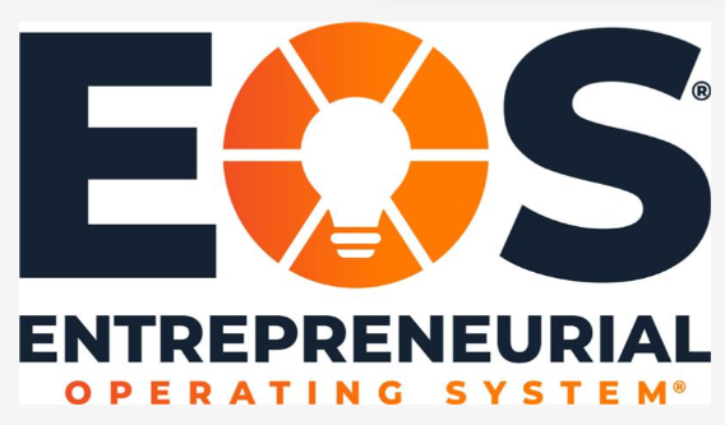Get back to running your business instead of letting your business run you
What’s something you wish you had more control over in your company?
EOS implementer Becky Fromkes recently asked webinar participants this question and got some common responses: money, results, time, and cash flow. Implementing EOS, or the Entrepreneurial Operating System, can improve all of these. EOS helps organizations clarify their vision, improve transparency, and ensure the right people are in the right positions.
The webinar featured panelists from IT staffing firms with experience implementing and using EOS to get more clarity and control over their business:
- Mark Morton, Founder & Chairman, Morton
- Monica Dominic, Chief Client Officer, ProTeam Solutions
- Rob Duhon, COO, BravoTech
What is EOS and How Can It Help IT Staffing Businesses?
EOS focuses on six key ingredients to running a successful business:
- Executing long-term vision
- Getting people in the right seats
- Knowing your numbers
- Taking action on decisions
- Creating repeatable processes
- Aligning the organization to the plan
As an EOS implementor, Fromkes works with companies to strengthen their business by improving their vision, traction, and health. The panelists elaborated on how EOS has helped their organizations grow stronger in these three areas.
Vision
Fromkes defines vision as “the idea that your entire company knows exactly what the plan is and where you’re going, long- and short-term.” EOS helps organizations ensure alignment on a company vision through transparency. While some leaders fear transparency, laying out all the data can build trust among team members. “Before implementing EOS, there wasn’t much transparency. Implementing EOS really made me feel more invested in the company once I could see all that information,” Dominic said.
Clarifying the company vision also helps people understand their role in the greater picture. Morton said, “I love how EOS uses the term ‘accountability chart’ instead of ‘org chart.’ It empowers people to identify the area of the business they should focus on.” However, it’s important to have someone on the team to counterbalance the company visionaries, especially for self-implementors. “If you don’t have someone who is detail-oriented to counterbalance the company’s visionaries, you may struggle with self-implementation. There needs to be a balance between the visionary and the realities of what your organization can actually accomplish,” Duhon explained.
Traction
According to Fromkes, “Traction entails working with discipline and accountability.” The EOS model includes holding regular accountability meetings where the leadership team can reflect on what is and isn’t working and make decisions for the future. “When running a medium-sized company, it’s easy to get caught up in the weeds and it’s hard to be strategic. We put everything on the calendar and commit to not canceling, even when we have a lot of other things going on,” said Duhon.
EOS comes with tools to help keep meetings running smoothly. “We really like using the 90 platform to help us stay on target during meetings. It prompts you and keeps you accountable. You can also use it to put your rocks and organizational data, like your scorecard. This has been very useful for helping us make the most out of our meetings,” says Morton.
Although EOS can be beneficial, adding it to a workflow isn’t necessarily quick or painless. “We were resistant to EOS at first. But once we got through the discomfort of adding a new process, we realized that it was more about giving us transparency so we could see what wasn’t working and find out why. It’s hard at first, but once you gain consistency, it becomes easy. And then it’s a game-changer,” Dominic added.
Health
In EOS, Fromkes explained, “Health means the leadership team is working together in an open, honest, and vulnerable way.” Dominic added, “It’s not about walking on eggshells and tiptoeing around a problem – it’s about identifying it, talking about it in a safe space, and then solving it. You have to delegate and elevate the priorities.”
One great thing about EOS is that it’s not prescriptive—organizations can use the framework and tools to get the most out of their meetings. Using scorecards in your meetings helps to manage what gets measured. Fromkes explained, “So if we’re measuring and we’re managing those numbers every single week, you better believe we’re going to be taking action on getting those done.”
Morton added another positive outcome has been “helping us hire better people and make better decisions on people. It’s helped us prioritize and build consensus with our team around all of our hires.”
Such transparency can lead to meaningful conversations and better decisions. “The guardrails EOS puts in place have made it a little bit easier to say no to some big ideas and forced us to have tough conversations because we have to start with the issues. It can be difficult, but in the end, it’s about what’s best for the business,” Duhon added.
Keep Up with the Latest in IT
Implementing EOS into a business requires some upfront time and resources but can be a game-changer for improving efficiencies, making business decisions, and ensuring the right people are in the right seats. TechServe Alliance members can view the full on-demand webinar here.
Not a member? Contact [email protected] to learn about the membership resources and benefits that drive success for IT & engineering staffing firms.












